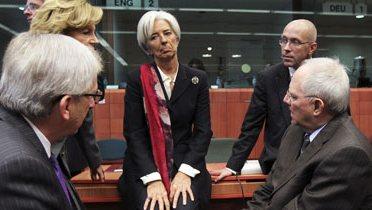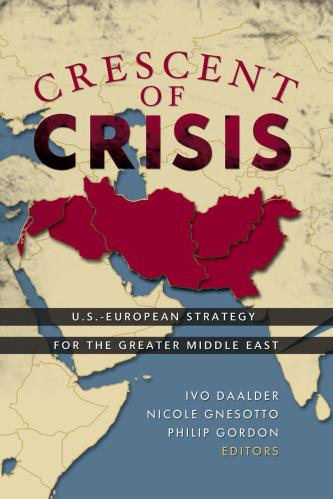Listen to BPEA Co-editor discuss this paper:
Over the past 12 years, Portugal has been in a severe economic slump — growing less than the US during the Great Depression and Japan during the Lost Decade — and that slump was mainly caused by the country’s inability to efficiently allocate the foreign capital inflows it received after joining the Eurozone, according to a new paper presented today at the Spring 2013 Conference on the Brookings Papers on Economic Activity (BPEA). Portugal was one of the first countries to join the Euro, in 1999.
“Portugal was one of the fastest growing countries in the world during the 15 years after it joined the Economic Free Trade Area in 1959. The years after joining the then European Community in 1986 were likewise marked by great progress. Yet, joining the European Monetary Union came with a prolonged slump,” writes Ricardo Reis in “The Portuguese Slump and Crash and the Euro-Crisis.”
Because Portugal was one of the first countries where the symptoms of the sovereign debt crisis were initially identified, it can help macroeconomists understand what has been happening in Europe more broadly. “Portugal did not have a housing boom like Spain and Ireland, nor as rampant an increase in public debt as Greece, nor does it have Italian political instability. Yet, since 2010, all five countries have been in a similar crisis,” he writes.
Reis finds that Portugal is unique in that it was one of many countries that went through a sharp increase in capital inflows from 2000 onwards — but while those inflows led to a boom elsewhere, in Portugal, they actually triggered a slump. Reis argues the economic crash is due to two main reasons: underdeveloped credit markets in Portugal caused foreign capital to go to unproductive firms in the non-tradable (services) sector, in turn causing productivity to fall and the real exchange rate to appreciate, taking away resources away from the tradables (manufacturing) sector. Reis notes that in spite of the large increase in unemployment in Portugal — almost 17 percent at the end of 2012 — labor costs have only recently started falling and only by 4 to 6 percent by now.
The other factor at play was tax policy, he writes. The Portuguese government continuously raised taxes from 2000-2007 due to generous past promises made for seniors’ pensions. Those higher taxes discouraged work as well as misallocated resources. The Euro-crisis post 2010 led to further increases in taxes to implement the austerity measures imposed by European authorities and the IMF, and this has further stalled the chances for Portugal recovering.
In addition, Reis suggests that Portugal, Ireland, Greece, and Spain, all went through a similar path since 2000. Capital flowed in, was channeled into the services sector, which boomed at the expense of manufacturing, lowering productivity, raising wages and leading to losses of competitiveness. The particular failure of the Portuguese economy to allocate capital and the increase in taxes led it to slump, while the other countries were booming. All of them accumulated a large amount of external debt, so when the worldwide financial crisis hit, causing a sudden stop of capital flows, the consequences were devastating. The exodus of private capital flows is comparable to the deep crises in Latin America in the last two decades, he writes.
Looking at the financial sector, Portuguese banks have not been in a strong position to help the overall economy, he notes. Unlike American banks, the ones in Portugal are very large relative to the size of the country: in 2007, the three largest Portuguese banks had assets of up to two-thirds of the country’s GDP, making it difficult for the already cash-strapped government to rescue the banks in a serious financial crisis. In addition, Portuguese banks hold a large amount of Portuguese government securities, making them highly exposed to Portuguese government.









